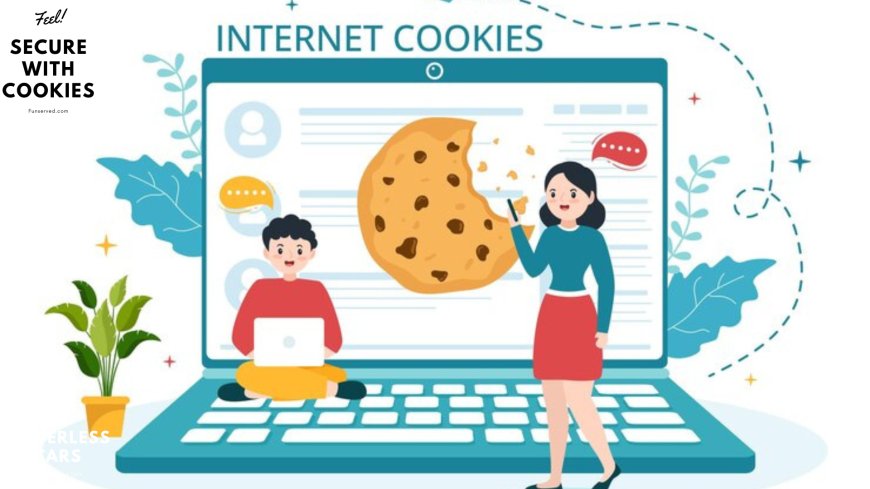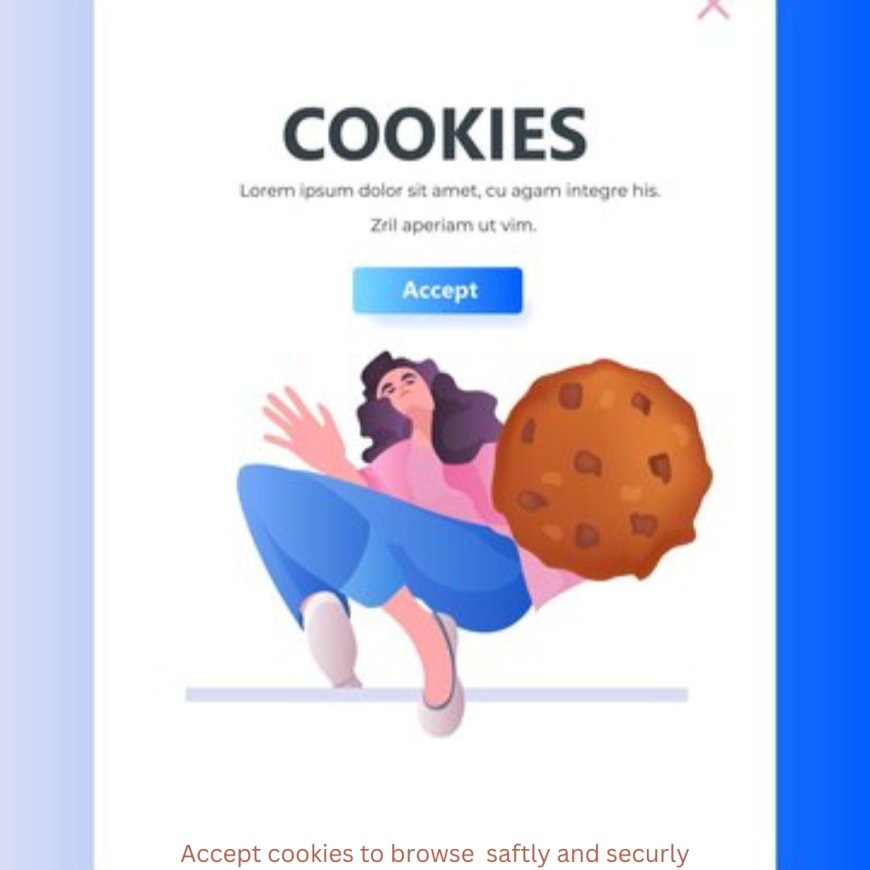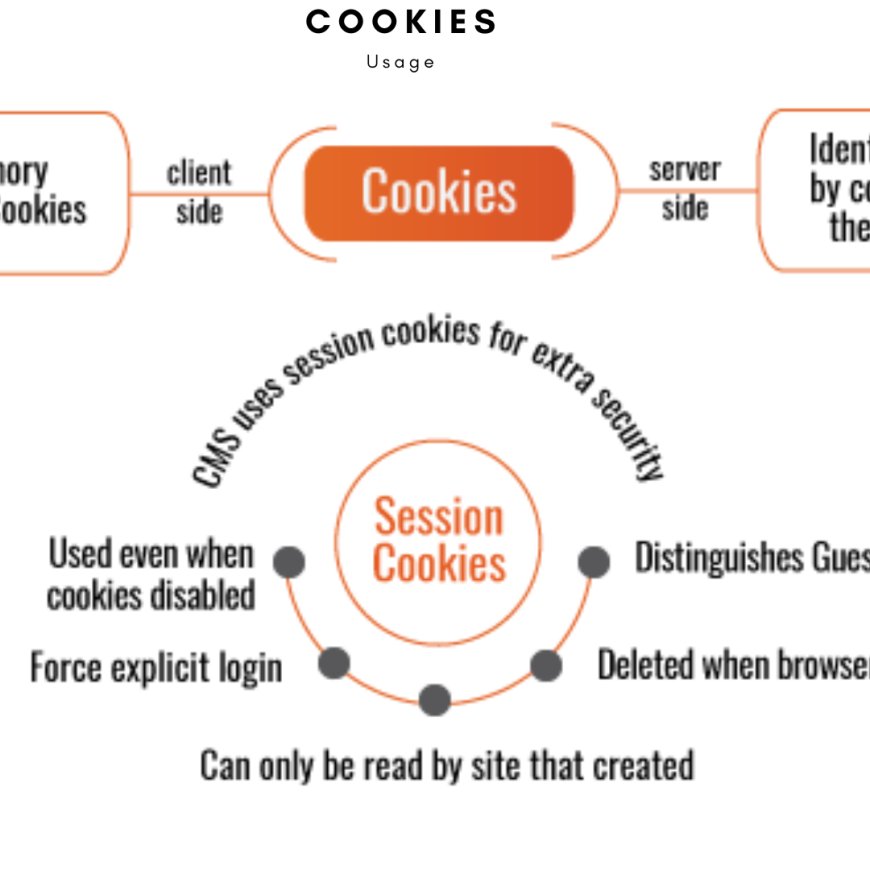What Are Internet Cookies and What Do They Do?
"Discover the role of internet cookies. Discover how they monitor data, improve user experience and affect privacy online. Get answers now!"

One of the many technologies used as the internet has developed to improve the user experience and provide more personalized services is the cookie. Users need to have a firm grasp on the topic of internet cookies since it has far-reaching effects on areas such as privacy and data security. By understanding how cookies function, users may effectively explore the wide expanse of the web while exercising a great deal of control over their personal information.
Comprehending Internet Cookies
Internet Cookies Defined:
Internet cookies are small packets of data stored on users' devices by websites to remember information about users, such as login information, language preference, or items in a shopping cart. These apparently inconsequential bits of data serve a crucial role in enhancing the user experience when exploring the web.
Operational Dynamics of Cookies:
Cookies operate silently in the background, collecting data to enhance user-web interaction. Cookies are little text files sent from a website to a user's device and saved in the browser. Subsequent visits to the same site will see the browser send back the cookies, providing the website information about the user's previous interactions, thus enabling a more tailored experience.

Classification of Internet Cookies
Session Cookies:
These are temporary and are erased when the user closes the browser. They help websites remember what the user did on the previous page, avoiding the need to re-enter information.
Persistent Cookies:
These remain on the user’s device for a predetermined period or until manually deleted. Cookies are little text files stored on a user's computer to track their online activities and preferences.
Functions and Utility of Internet Cookies
Customizing User Experience:
Cookies save information about a user's actions on a website, such as their settings and browsing history, allowing for more tailored experiences. This degree of personalization improves the usability and attractiveness of websites by providing visitors with information that is more relevant to their needs.
Refining User Interaction through Personalization:
Cookies facilitate the provision of tailored services and content, such as preferred languages and accessibility options, allowing users to interact with the web in a manner most suitable to their preferences and needs.
Empowering Website Analytics:
User data collection is a cornerstone of web analytics, and cookies play a key role in this process. Webmasters may learn more about visitor habits, enhance site functionality and better meet visitor preferences by analyzing cookie data.
Sustaining Website Performance and Functionality:
Through data retention and retrieval, cookies sustain essential website functions such as user authentication and shopping cart contents, ensuring smooth, uninterrupted user experiences.

Privacy Concerns Surrounding Cookies
Online privacy is an increasingly important issue in today's connected world. At the heart of this conversation are 'cookies'—tiny packets of data that websites store on users' devices. But what do these bits of digital breadcrumbs really mean?
Data Collection and User Privacy Issues:
One of the primary concerns about cookies is data collection. Cookies may be used to remember a wide variety of data about a user, from their preferred settings to more in-depth profiles based on their online activities. While this information might be useful, it also raises privacy issues since it can be utilized to provide a more personalized online experience.
Many people are suspicious of the websites they often use because they worry that their data may be collected without their knowledge, leading to unwanted monitoring or even security breaches.
Legal Regulations Related to Cookies:
Recognizing the potential risks, legislative bodies have taken steps to protect user privacy. Notably, the General Data Protection Regulation (GDPR) has set stringent rules on how companies can use cookies and the kind of consent they must obtain from users. Under GDPR, websites are obligated to be transparent about their cookie policies and offer clear opt-in choices for users. Cookies still provide many advantages, but these rights are protected within these legal frameworks.
The Importance of Cookies on the Web
Cookies, despite the worries, are a crucial part of our internet experience.
Convenience for Users:
Imagine having to reset your preferences every time you visit a site, or re-entering login credentials continuously. Cookies save time and effort by remembering your preferences when you browse the web.
Improved Website Functionality:
Cookies allow websites to optimize their functionality based on user behavior. Web developers may improve their sites' usability by studying how visitors move around them.
Benefits of Advertising and Marketing:
From a corporate point of view, the information gleaned by cookies about customer preferences and habits is priceless. This information is useful for marketers since it allows them to tailor their advertising efforts to each individual user. This not only improves the user experience but also the conversion rate by displaying material that is more relevant to the user's needs.

Managing and Controlling Cookies
Our capacity to control our digital imprint grows in tandem with the development of new technologies.
Browser Settings for Cookie Management:
Most browsers today offer settings that allow users to control how cookies are handled. Users can choose to block cookies entirely, accept them from only certain websites, or even opt for an incognito mode, which doesn't store cookies or browsing history.
How to Delete, Block, or Allow Cookies:
If you wish to take control of your online experience, start by diving into your browser's settings. Here, you'll find options to view stored cookies, delete them individually or en masse, or block them from specific sites or altogether. Remember, while blocking all cookies may seem like the most private option, it might diminish the functionality of some websites.

Frequently Asked Questions
Q. What are First-Party and Third-Party Cookies?
First-party cookies come from the source website. By customizing content and pathways, they recall users' preferences, remember their interactions and enhance service quality.
Third-party cookies come from sources other than the visited site. User tracking and online advertising cookies enable firms to tailor content to users' interests and online activity.
Q. Can Cookies Damage My Computer?
Cookies save textual user data and cannot infect other parts of your computer. They may allow indirect privacy violations. Bad actors may utilize website cookie flaws to steal users' identities or hide their electronic footprints. Thus, users should strictly regulate cookies and only allow them from trusted sources.
Q. How Does One Ascertain the Cookies Employed by a Website?
Users may examine browser settings to see website cookies. Most browsers allow you to see, control and delete cookies under “Settings” or “Preferences”. Many browser extensions and web programs can examine cookies and offer information on their origins, functionalities and more.
Conclusion
Whether First-party or Third-party, Internet cookies are pivotal architects in constructing enriched online odysseys. Although cookies are generally helpful, their potential misuse highlights the need for careful and intelligent Internet use. Users must manifest discernment in cookie authorizations and employ astute cyber etiquettes to maintain privacy and fortification. Mastery over cookie functionalities, applications, and inherent perils is crucial for securely and adeptly traversing the intricate cyberspace fabric.
To encapsulate, the internet is a colossal and multifaceted entity, brimming with knowledge and opportunities; adept comprehension and utilization of cookies are paramount to augmenting one’s online sojourn while preserving one's digital identity.
What's Your Reaction?










































